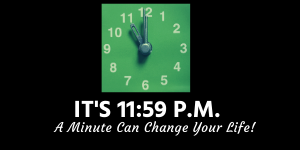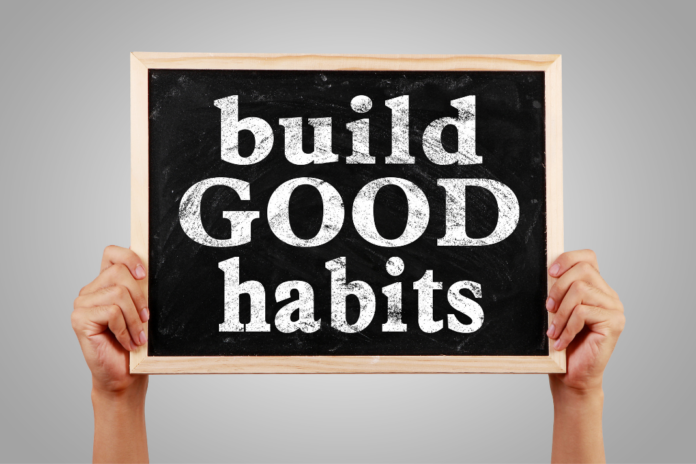Welcome to June’s post. We’ve entered the halfway point of the year and summer is in the air. This is the month to re-focus and re-engage your yearly goals.
It’s no secret that success and failure largely rely on habits. What we do or fail to do determines the quality of our lives. Whether it’s styling your hair, publishing books, doing squats, or opening a savings account, it might not matter in the short term but has a lasting effect long term.
Now, let’s imagine the difference between two identical people over 10 years:
● One saves 10% of his paycheck. The other saves nothing.
● One brushes brush his teeth. The other isn’t very consistent.
● One reads something educational each day for 20 minutes. The other doesn’t.
● One exercises for 30 minutes 3 times a week. The other prefers to watch his favorite TV show.
● One practices on his bass guitar for 20 minutes each day. The other doesn’t.
What are the differences in 10 years?
The first person will have a healthy savings account, have all of his teeth, gained the knowledge from 100s of books, be in great shape, and a pro at playing bass guitar.
The other won’t have any of those things.
If you want to bring positive change to your life; practical habits are what you need.
It’s time to build new habits the easy way by avoiding these common traps that can crash your efforts.
Avoid these mistakes when trying to develop new habits:
- Trying to build too many habits at once. The key to building a new habit is consistent change. Your concentration and comfort level decreases when you’re trying to change too much all at once. When building new habits at one time, a good rule of thumb is three. This also depends on the habits you’re trying to build.
- Impatience. Let’s be clear, building new habits does not happen overnight, as it takes time to take hold. I’m sure you’ve heard that the minimum time to build a new habit is 21 days. However, more comprehensive studies on habit development suggest that sometimes it can take almost 300 days to form a habit. The average is 66 days.
- Unprepared for the challenges. Think about those obstacles you’ll face and create an action plan on how you’ll deal with them.
- For instance, you’d like to go to the gym after work, however, you find that it’s going to be challenging. Perhaps there’s a lot of traffic or the gym is a great distance away. Plan for going at a time that will be easier for you or pick a gym that’s closer to your home or work.
- Building a habit that little to no effect on your life. Following the good rule of thumb of creating only a few new habits at a time. It’s important to build habits with overarching effects.
- For example, meditation can have an overall effect on your life.
- Changing too quickly. Building habits with a lasting change requires time and dedication.
- For example, take a five-minute evening walk, flossing one tooth at a time, half or one push up at a time.
- Build the habit by doing the action and then increase the duration. Make it so easy that you can’t possibly fail to do it.
- Slow progress key. For many, it’s challenging to believe that half or one push can matter. But, half a push up leads to one and so forth. Eventually, you’ll be doing 25 or even more.
- How often do you check your progress? You’ve made progress, even if you went from half a push to 10 push-ups over the course of a few months you’ve made progress.
- Too much emphasis on the results and not the benefits. Remember, you want to experience the benefits of the habit you’re building. For example, let’s say you’ve chosen a walking habit to shed a few pounds, don’t expect to get on the scale after your first walk and see tremendous weight loss.
- Focus on the change of the habit brings. Get excited, you’re adding value to your life by developing a new habit.
- You fail to control your environment. Your environment matters. It’s more challenging to play your guitar each day if it’s kept in storage; instead, set it up in an environment where you can just pick it up and practice.
- It’s quite a challenge to stick to a low-carb diet plan if your kitchen is full of high-carb foods such as bread, chips, and pasta.
- It’s important to give yourself the best chance for success.
As we go through the month of June, let’s avoid undervaluing the practicality of positive habits and the negative impact of poor habits. Our habits matter, so we must take time to think about our habits and their effects on our lives. Creating effective habits will lead you to a life you enjoy!
We want to hear from you! How will you avoid these common mistakes when building your new habit? Leave a comment below.





